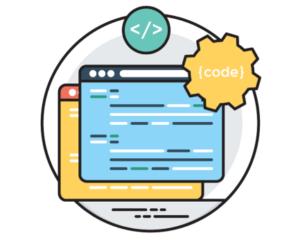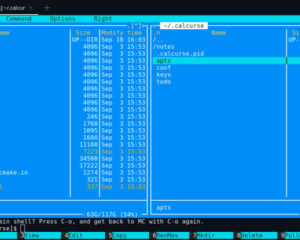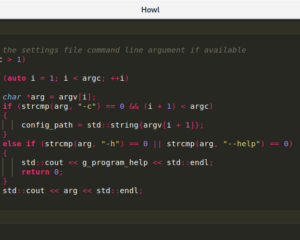The MATE Desktop Environment is the continuation of GNOME 2. It provides an intuitive and attractive desktop environment using traditional metaphors for Linux and other Unix-like operating systems. If you love cascading menus, top and bottom panels, and an absence
Read moreSearch Results for: essential system tools
LXQt – The Lightweight Qt Desktop Environment
LXQt is a lightweight Qt-based desktop environment. LXQt is the product of the merge between LXDE-Qt, an initial Qt flavour of LXDE, and Razor-qt, a project aiming to develop a Qt based desktop environment with similar objectives as the current
Read moreGNOME – finely crafted desktop environment
GNOME is a desktop environment for Unix-like operating systems, composed entirely of free and open-source software. It provides a graphical user interface and a set of core applications, and the GNOME Development Platform, a framework for building applications that integrate
Read moreKDE Plasma – desktop environment created by KDE
Plasma is the KDE workspace. It’s a common framework for creating integrated interfaces. It’s flexible enough to provide interfaces for mobile devices (phones and netbooks), media centres and desktop computers. Plasma supports widgets written specifically for Plasma (also known as
Read moreBudgie Desktop – flagship desktop environment for Solus OS
Budgie is a desktop environment that uses GNOME technologies such as GTK+ (> 3.x) and is developed by the Solus project as well as by contributors from numerous communities such as openSUSE Tumbleweed, Arch Linux and Ubuntu Budgie. Budgie’s design
Read moreDeepin Desktop Environment – desktop environment for Deepin Linux distro
The Deepin Desktop Environment (DDE) is the desktop environment of the Chinese Deepin Linux distribution. This custom interface is built atop common technologies, Qt/C++ and Golang. Qt is a cross-platform application framework and widget toolkit for creating classic and embedded
Read more
5 Best Free Node.js Introductory Books
Node.js (commonly known as Node) is a modern, event based, asynchronous I/O software platform which is designed for scalable network and server-side applications. First released in 2009, it is released under the MIT license.
Read more
Leo – Python based IDE, Outliner and PIM
Leo (Leonine Editor with Outlines) is an open source text editor/outliner that features clones (virtual copies of outline nodes).
Read more
Survey: Console Based Linux File Managers
In the field of system administration, Linux has bags of graphical file managers. However, some users prefer managing files from the shell, finding it the quickest way to navigate the file system and perform file operations. This is, in part, because console based file managers are more keyboard friendly, enabling users to perform file operations without using a mouse, and make it quicker to navigate the filesystem and issue commands in the console at the same time.
Read more
8 Lesser Known Yet Awesome Text Editors
Irrespective of the operating system used, the text editor is one of those quintessential applications for many users. A text editor is software used for editing plain text files. Text editors are used to write programming code, change configuration files, take notes, and more. For this feature, we wanted to select alternative text editors which are definitely worth trying but may have been missed given that they receive less coverage in Linux publications, and are not included or installed by default in many Linux distributions.
Read more